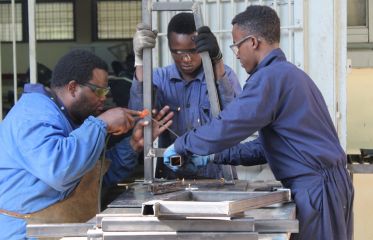Parents serve as a major influence in their children’s career development and career decision- making. Parents want their children to find happiness and success in life and one factor which influences happiness and success is career choice. Research also indicates that when students feel supported and loved by their parents, they have more confidence in their own ability to research careers and to choose a career that would be interesting and exciting. This is important because studies show that adolescents who feel competent regarding career decision-making, tend to make more satisfying career choices later in life. (Keller 2004).
Parents influence the level of education or training that their children achieve; the knowledge they have about work and different occupations; the beliefs and attitudes they have to working; and the motivation they have to succeed. Most of this is learned unconsciously – children and teenagers absorb their parents attitudes and expectations of them as they grow up.
Some of the key influencers are:
- The expectations parents have for their children's education and career.
- The example they set for their children.
- The values they show to their family, friends and to society.
- The opportunities they offer their children to learn and develop.
- The kind of parent-child relationship they develop.
Tips to help your child’s career development:
- Encourage your children to get as much education as possible.
- Help them to discover their innate talents and skills.
- Develop their knowledge of the world of work.
- Teach them decision- making skills.
- Value gender equity and cultural diversity.
- Become aware of career resources/ education and training opportunities.
- Observe the effects of work experience.
Middleton and Loughead (1993) talk of how parents can be an important and positive influence in decisions affecting a young person's vocational development. Though they also warn that over-involvement in the decision- making process can undermine parental effects as a positive source of influence.
Excessive parental control regarding adolescents' occupational decision-making results in negative outcomes. Nucci (1996). Parents should be cautioned against imposing their own goals on to their children or seeing their child’s accomplishments as a reflection on themselves.
So while parents should show genuine interest and support for their adolescents‘ career plans, they must allow adolescents to discover who they are on their own. Some teenagers fear the disapproval of their parents if they pursue a career in art/drama/music as opposed to a practical high-earning occupation such as law or medicine.
If parents make it clear that they have no specific expectations for their child’s career, he/she will feel free to explore a greater variety of professions, choosing one based on their own preferences rather than those of their parents.
Choosing a career is an extremely important decision that impacts an individual‘s entire future, so parents can become very stressed. It is important to stay positive otherwise it can become a stressful time for all involved. Parents unwittingly can make the past seem perfect and the future terrifying.
In a study by Bregman and Killen (1999) it was documented that adolescents valued parental influence and guidance in the area of career choice and vocational development.. It is important for parents to give students support and encouragement to explore the many options available to find the best career fit. It is best to start the discussion as early as possible, don't wait until students are looking at CAO forms in the sixth year. Much of the formative discussion should have happened well before this stage. If the process is started early, there is less likelihood of making unwise decisions.
Parents should guard against shooting down ideas their children may have about their future careers. If they react negatively, it may shut down the whole exploration process. Parents need to keep the lines of communication open and encourage their child to gather as much information as possible on their career interest areas. A parent must recognize that their role is simply to act as a facilitator in their child’s career journey and allowing independent career choices marks a young person's first real step into adulthood.
Look out for the danger signs in your child's approach:
- Waiting until the last minute to make decisions.
- Unrealistic expectations.
- Promises to work miracles with study next term.
- Carrying too many higher-level subjects in spite of poor reports from teachers.
- Lax approach to homework.
- Interference from social activities or a weekend job which is funding their social life.
- Selecting a course because the career is well paid. They are more likely to gain a good result in their degree if they enjoy and are interested in the course.
Things a parent can do to help:
- Read up on the relevant courses on The Student Hub. From an adult perspective, you may have some questions that your child has overlooked.
- Make sure your son/daughter goes to some Open Days. These are essential for students trying to come to terms with the vast array of colleges and courses. However, an Open Day will not be helpful if there has been no preparatory work beforehand.
- If possible introduce your son/daughter to someone currently doing the course/working in the career area.
- Look at the list of proposed courses and find out if your son/daughter has researched each course thoroughly. Any course that has not been thoroughly researched should not be on the list.
- Have the course choices been discussed with a Guidance Counsellor?
- What is the backup plan if the predicted results do not happen?
- If the school organises career talks for parents, make sure you are in attendance.
- Be aware of the risks of failing a crucial higher-level paper such as English or Maths. An E on a higher-level paper will not be accepted whereas a D on a lower-level paper may be acceptable.
- Attend Parent/Teacher meetings
- Remember parental advice is invaluable, but school leavers must make their own particular career choices.
A few simple rules:
Be involved, but not in control
Advise, but do not decide
Support, but do not dominate.































